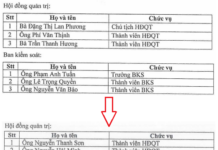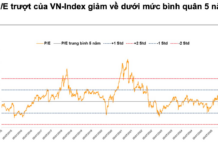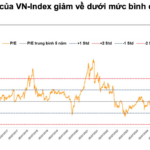There are still inadequacies in the regulations on mineral protection and mineral recovery.
Overall, Delegate Duong Khac Mai agreed with the Monitoring Delegation’s report and highly appreciated and shared with the Government the results achieved in the implementation of Resolution 43 of the National Assembly.
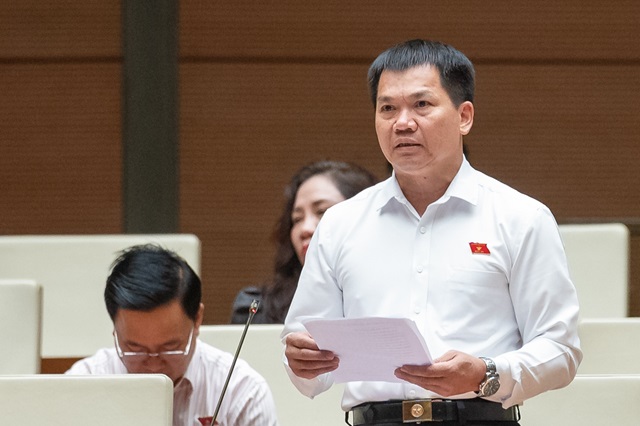 Delegate Duong Khac Mai – Dak Nong Provincial Delegation, National Assembly
|
First, the implementation of the fiscal policy under Resolution 43/2022/QH15 has helped businesses and households in the area recover and quickly develop production and business activities, promote growth drivers, reduce costs, support cash flow, ensure initiative, and create favorable conditions for businesses, economic organizations, and people.
Second, reducing the VAT rate by 2% under Resolution 43/2022/QH15 of the National Assembly has had a direct positive impact on social life, thereby reducing product prices, ensuring social security, and supporting people’s lives.
However, the delegate also pointed out that there are still some shortcomings and limitations in the implementation process. Regarding the investment and development policy, Delegate Duong Khac Mai said that the disbursement of capital belonging to the program has been actively implemented by Dak Nong province since it was assigned by the Government.
Currently, there are still some problems that may affect this goal, namely the inadequacies in the current Mineral Law, such as regulations on mineral protection and mineral recovery. This problem has also made it difficult for many projects, including components of the three National Target Programs and other socio-economic development projects, to be implemented, thereby affecting the disbursement progress of investment capital and generally affecting socio-economic development in the province.
“I have also proposed this issue many times at the National Assembly sessions. Therefore, I continue to propose that the Government pay attention to directing the relevant ministries and sectors, especially the Ministry of Industry and Trade and the Ministry of Natural Resources and Environment, to soon take solution to remove obstacles so that Dak Nong province can overcome these difficulties,” emphasized Delegate Duong Khac Mai.
There is a need to soon find a solution to remove legal obstacles to unlock investment, production, and business resources.
Delegate Duong Van Phuoc – Quang Nam Provincial Delegation, National Assembly also mentioned some difficulties. With the nature of a Group B project, which is usually implemented within 4 years, the project/program is urgent and must be implemented within 2 years (2022-2023) and is not a case allowed for direct appointment according to Clause 1, Article 5 of Resolution 43. It is still necessary to select contractors through online bidding, and the other steps also follow the normal procedure for implementing projects, so the organization and implementation process faces many difficulties, slowing down the progress of project implementation.
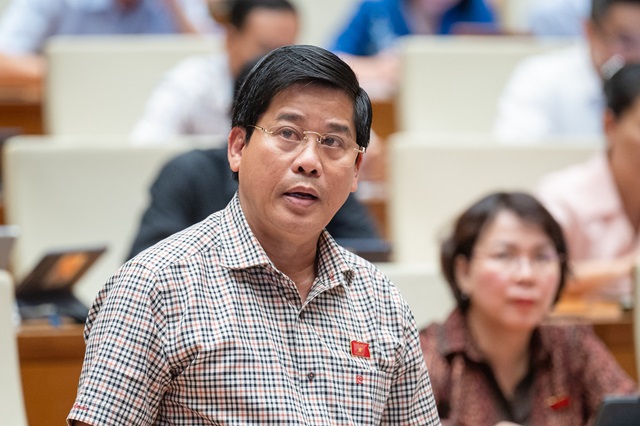
Delegate Duong Van Phuoc – Quang Nam Provincial Delegation, National Assembly
|
According to Mr. Phuoc, the public investment and development investment policy has only disbursed 65.3% of the plan, and the disbursement progress of many projects has not met the requirements. In addition to objective reasons, there is also the responsibility of some central ministries and sectors, as well as some localities, for the lack of drastic deployment.
Therefore, he proposed that the National Assembly, the Government, and the central ministries and sectors continue to pay attention to the following issues:
First, the National Assembly should consider issuing mechanisms and policies to continue supporting and restoring socio-economic development, as well as solutions to remove obstacles and legal barriers to unlock investment, production, and business resources.
Second, the Government needs to flexibly manage fiscal and monetary policies and continue to implement synchronous solutions to remove difficulties for the financial, monetary, corporate bond, and real estate markets.
Third, it is recommended that the central ministries and sectors continue to study and simplify procedures to create favorable conditions for people and businesses to access resources and promote production and business activities.











